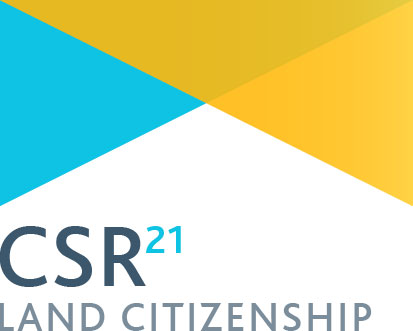
Head-exploding report says Don't Be Evil
Affectio Mutandi and Kepler Cheuvreux this week brought us what they call “the first report to look at the materiality of the legal, social and reputational risks facing businesses (especially multinationals) and investors.” (Link to press release - full report available on request). As they put it, “The increasing need to allow for ESG issues, and the “judicialisiation” of such issues, exacerbated by the digital activism revolution, present a challenge for due diligence. Investors and socially responsible investment are the main collateral victims of these new risks.”
As that taster might suggest, there is in fact more jargon in this report than a weekly meeting of Jargon-lovers Anonymous, but we’ve drilled down for you and picked the low hanging fruit in order to provide visibility of the key action items going forward.
Under the banner “Corporate social responsibility (CSR) is changing: new risks for multinationals and investors,” here’s what the report says are its main lessons, conveniently translated:
Stakeholders are learning to combine (voluntary) soft law with (binding) hard law to invoke corporate responsibility where businesses fail to respect their commitments in social responsibility matters, particularly in developing countries
- Civil society is watching, and it’s not as easy to break the law or shirk responsibility as it used to be. CSR21 thinks on balance that this is a Good Thing.
NGOs are citing the Guiding Principles of the UN and the OECD to confront controversial companies. Investors and asset managers holding securities issued by these businesses (e.g. Dutch and Norwegian investment funds) face questions about the responsible nature of their investments and calls to exert their influence with the companies or projects that they support.
- The money men are listening, and acting accordingly. Take note. For a pretty high-profile example, see here for our story on how the world’s biggest fund, the Norway Pension Fund, was turned off extractives on ethical grounds.
Civil Society 2.0 is exacerbating the reputational and legal risks relating to ethical commitments. The possibilities for mobilisation offered by digital technology are exposing businesses and investors to unprecedented demands and social pressures, which might lead some of them to avoid certain sectors or countries when making investments (e.g. Israel), and in the medium term could even result in class actions or restrictive regulations, notably with the Open Governance principles and online petitions.
- The existence and widespread uptake of the internet, coupled with the fact people care about this stuff, means there are a lot of people out there with Twitter accounts who are invested in whether you break the law or take the piss, and they’re going to tell lots of other people if you do. You could get in trouble for this, maybe a lot.
To reduce the risk of reputational attacks or legal action, corporates and investors must adapt their due diligence and tighten up their specifications. New shareholder commitment strategies by investment management firms are a step in this direction.
- To do well, you will have to obey the law, ideally in spirit as well as to the letter. As Google (ha!) so pithily put it, “Don’t be evil.” Again, the money men are interested in you doing this.
The clout wielded by such firms in financing the economy requires them to exercise their influence by always setting out their expectations with regard to ESG issues.
- Set an example.
The press release is here. While we don’t necessarily agree its conclusions represent quite the world-changing epiphany it’s pitched as (digital activism has been around for a while now), it is further evidence of what we see as a positive trend in acknowledging this. It’s worth a read if you can manage the language. Give us a call if your head explodes, we’ll help you.
ENDS
https://www.keplercheuvreux.com/
https://business-humanrights.org/media/documents/press_release_study_kc_a...
https://www.csr21.org/news/geopolitical/worlds-biggest-fund-turned-extrac...





